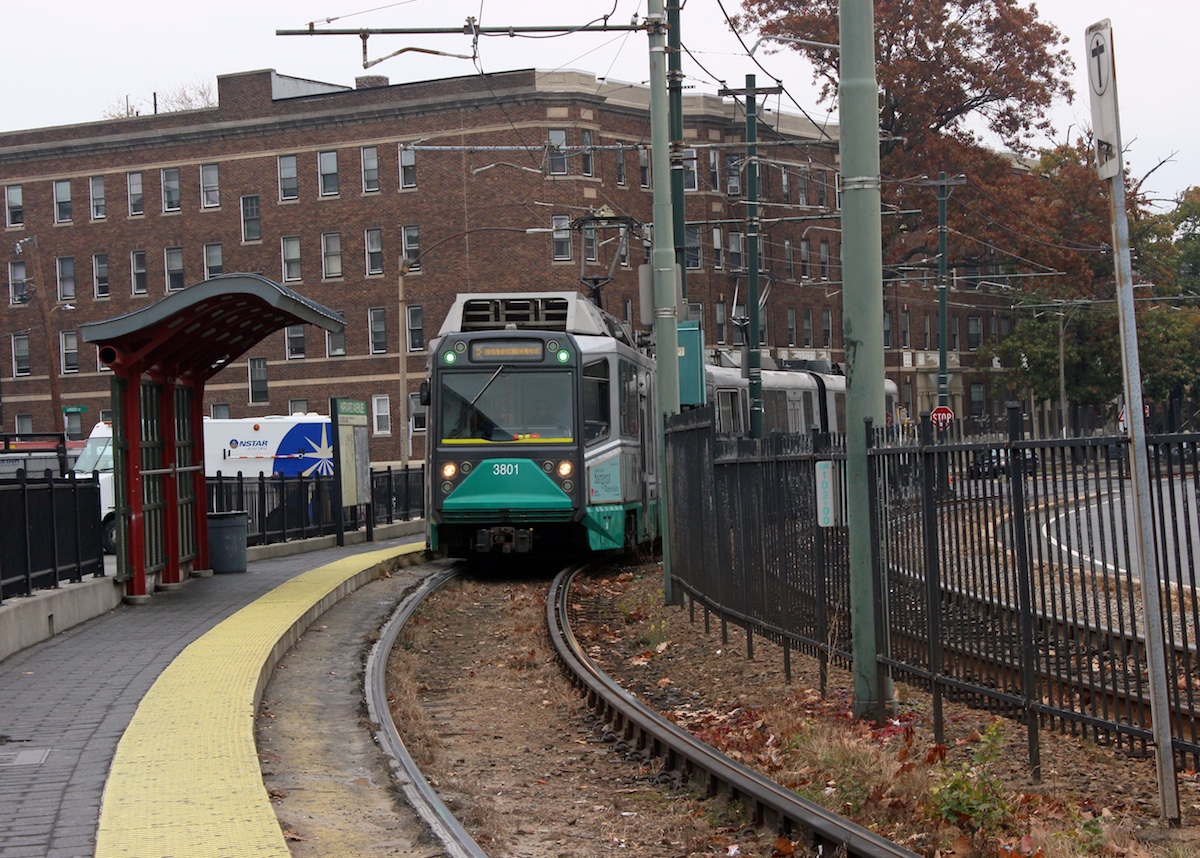Murky Future of Green Line Extension Becomes Clearer

photo By Olga Khvan
We now have a better idea of how Massachusetts Bay Transportation Authority officials will determine the future of the Green Line Extension.
The board that oversees the MBTA, the Fiscal and Management Control Board, will vote on the future of the Green Line Extension on May 11, 2016. Before that happens, a new interim project management team, led by Jack Wright of Weston & Sampson, will oversee a three-month redesign and re-budgeting of the Green Line Extension. Wright’s most recent experience with big ticket public works projects included managerial experience with the Big Dig. Wright and his team will focus on five areas: redesign, project controls, revenue, procurement, and stakeholder engagement.
The redesign and new budget is due to the board for discussion April 7. A new finance plan for the project is due May 6.
The FMCB is keeping the option of killing the project on the table while it waits to see what kind of savings are realized from a redesign and new budget. Board members passed a resolution in December to solidify the possibility of cancellation if the project is unable to work within its existing budget.
Multiple reports on the project found its cost overruns rooted in an untested procurement method known as construction manager/general contractor, or CM/GC, that focused more on speed than on cost containment, among other things. A new approach to procurement is expected to generate cost savings, but other cost saving changes to the project are being considered, such as altering the construction schedule along the Commuter Rail right of way that runs through Somerville.
“I assume we’re not going to stay with the CM/GC model,” said MBTA General Manager Frank DePaola.
The board is expected to meet with the MassDOT board next week to further discuss the future of the project.
The MBTA canceled the outstanding contracts for the Green Line Extension in December when more information on how the project went $1 billion over budget became available. The project was initially budgeted for $1.3 billion when the MBTA applied for federal funding. After it received federal funding, the MBTA revised its budget to $2 billion. The cancellation came when the latest budget estimates creeped north of $3 billion.
Advocates for the project remain cautiously optimistic.
“My hope is as they go and put a new budget together and that they will hold the functionality constant while they’re saving costs and that should be possible,” said Rafael Mares, vice president of the Conservation Law Foundation.

